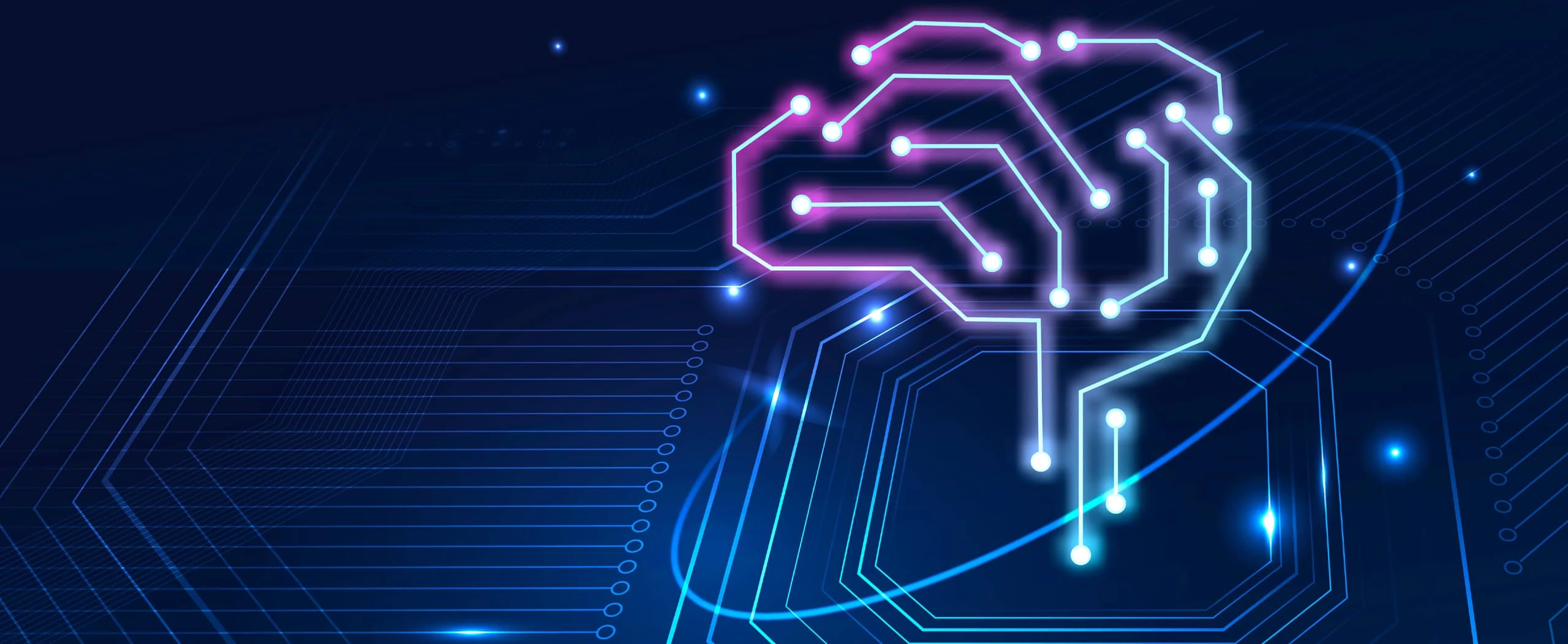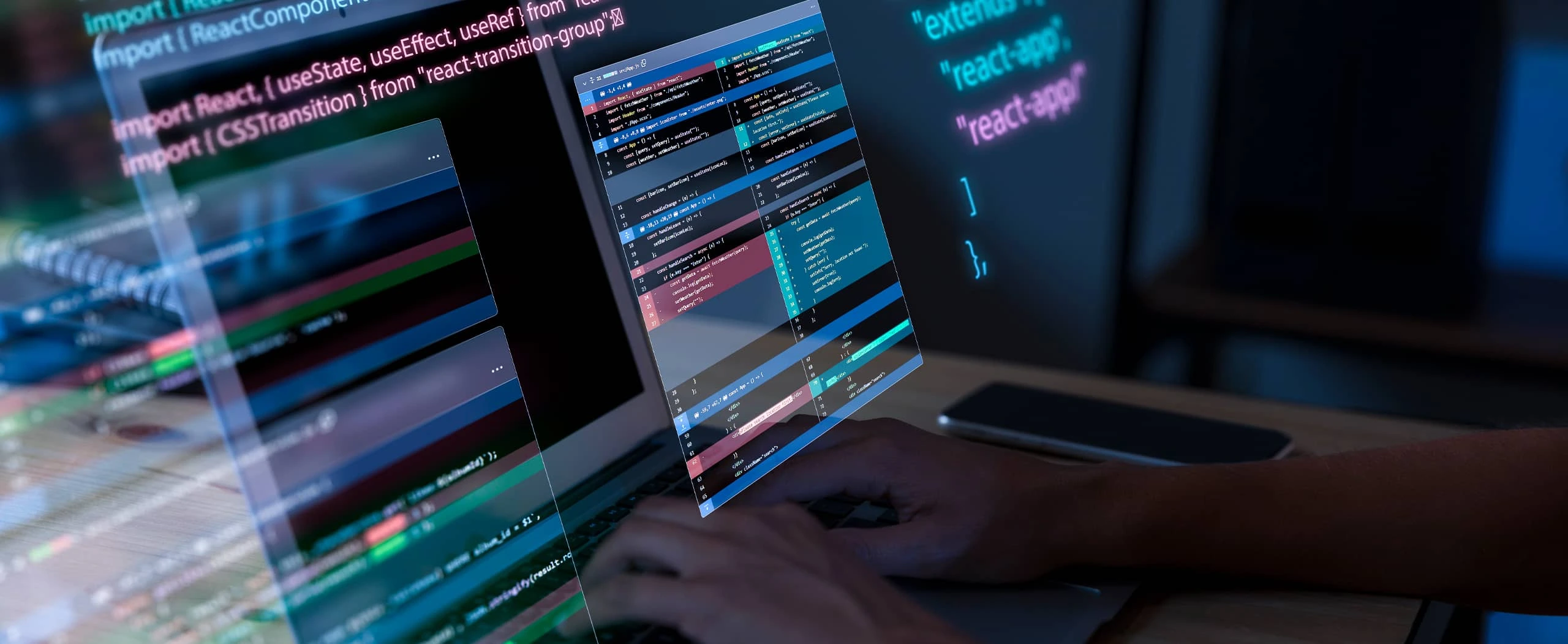Introduction
The significance of AI in website design cannot be overstated. It can analyze vast amounts of data and provide insights useful in optimizing web design in real-time. The integration of AI in website design is transforming the industry by providing responsive and adaptive designs, creating predictive analytics for design trends, automating processes and content generation, improving user interface and experience, and upgrading the way websites provide accessibility and inclusivity to different visitors.
Artificial Intelligence has had a significant impact on various industries, ranging from healthcare to automotive to finance. One area where AI has made significant strides is in website design. AI has provided, and will keep providing website designers with the tools they need to create websites that are more personalized, responsive, and intuitive than ever before. Below are some of the most important factors that AI is bringing to the world of web design:

Predictive Analytics For Design Trends
What is AI Predictive Analytics?
AI predictive analytics is a process of analyzing vast amounts of data to identify patterns and make predictions about future outcomes. In the context of web design, it involves analyzing data about user behavior, preferences, and engagement to identify emerging trends.
Benefits of Using AI Predictive Analytics For Web Design
There are several benefits of using AI predictive analytics for web design. Firstly, it can help businesses stay ahead of the competition by identifying emerging design trends before they become mainstream. This can give businesses a competitive advantage and help them stand out in a crowded marketplace. Secondly, by optimizing design based on user behavior and preferences, businesses can improve engagement and conversion rates, resulting in increased revenue.
So, how exactly does AI predictive analytics identify design trends? It involves analyzing different data points, such as user behavior, engagement, and social media trends. By identifying patterns in this data, AI can predict which design elements are likely to become popular in the future.
In conclusion, AI predictive analytics can be a powerful tool for businesses looking to improve their web design. By analyzing vast amounts of data, AI can identify emerging design trends and help businesses stay ahead of the competition.
Responsive And Adaptive Design
Understanding Responsive And Adaptive Design
Before diving into the role of AI in responsive and adaptive design, it’s important to have a clear understanding of these concepts. Responsive design involves creating websites that adjust their layout and content based on the size and orientation of the user’s screen. Adaptive design, on the other hand, involves creating websites that adjust their layout and content based on a wide range of contextual factors, such as the user’s location, browsing history, and behavior.
The Role Of AI in Responsive And Adaptive Design
AI can play a significant role in enhancing the responsiveness and adaptiveness of web design. For example, machine learning algorithms can analyze user data and infer patterns and preferences, allowing designers to create more personalized and context-sensitive experiences. AI has become a game-changer in the field of web design. It has revolutionized the way designers approach their work by providing an innovative set of tools that allows them to create unique and engaging user experiences. By leveraging machine learning algorithms, web designers can now analyze user behavior and preferences to create personalize.
Takeaways
AI technology offers a wealth of opportunities for enhancing the responsiveness and adaptiveness of web design. By leveraging machine learning algorithms and other AI tools, designers can create more personalized and effective user experiences. As businesses continue to focus on user-centric design, AI will undoubtedly play an increasingly important role in shaping the future of web design.

Automated Content Generation
In today’s digital landscape, websites serve as the face of businesses. From e-commerce sites to social media platforms, the content of websites plays a critical role in engaging and retaining users. However, generating quality content is a time-consuming and often costly process.
AI-powered content generators offer a solution to this problem by automating the process of content creation. By using machine learning and natural language processing, these tools can produce high-quality, unique, and relevant content in a matter of seconds.
What is AI Predictive Analytics?
At its core, AI-powered content generation relies on algorithms that are designed to mimic human writing styles. These algorithms analyze large amounts of data to identify patterns and generate content that is unique, relevant, and grammatically correct.
Some of the techniques used by AI content generators include:
- Analyzing existing content to identify common themes and patterns.
- Using natural language processing to understand the context and tone of the content.
- Generating new content based on the identified patterns and themes.
Advantages of AI Automated Content Generation
AI-powered content generation offers several advantages over traditional content creation methods. These include the ability to create high-quality content at scale, faster turnaround times, and cost savings. With AI-powered tools, businesses can easily generate large volumes of content, saving valuable time and resources. Additionally, AI-powered content can be optimized for search engines, resulting in increased visibility and website traffic. Another benefit of AI-powered content creation is the ability to personalize content to individual users, increasing engagement and improving the overall user experience. Overall, AI-powered content generation is an efficient and effective solution for businesses looking to streamline their content creation process while still producing high-quality content.
Challenges
While the advantages of AI-powered content generation cannot be ignored, it is important to acknowledge that it also poses several challenges. One such challenge is the need to ensure that the generated content is not only accurate but also relevant and aligned with the brand’s messaging. Despite the advancements in technology, AI-generated content may still lack the emotional and creative touch that human writers are capable of providing. Therefore, while content created by AI technology can be a useful tool for businesses, it should not be considered a substitute for human-generated content, as the ability to connect with an audience on a personal and emotional level is still best achieved through human creativity and understanding.

User Testing And Analytics
As more and more businesses move online, web design has become a critical factor in attracting and retaining customers. To ensure that their websites are effective and user-friendly, many designers have turned to AI-powered tools for user testing and analytics.
Traditional user testing methods can be time-consuming and expensive, and often produce inconsistent or unreliable results. AI-powered tools, on the other hand, can analyze large datasets quickly and accurately, allowing designers to identify usability issues and optimize their designs more efficiently. By automating the user testing process, AI-powered tools can save designers time and resources, allowing them to focus on other aspects of the design process. They can also help identify issues or bugs before they become major problems, reducing the amount of time and effort needed for debugging and troubleshooting.
AI-powered analytics can help improve website performance by identifying and addressing issues such as slow page load times or high bounce rates. By providing detailed insights into user behavior, designers can make data-driven decisions to optimize their designs and improve overall performance. By leveraging these powerful AI website testing and analytic tools, designers and developers can create more effective and user-friendly websites, and stay ahead of the competition.
Accessibility And Inclusivity
As the internet becomes increasingly central to our daily lives, it is essential that people with disabilities have equal access to online content. Fortunately, advances in artificial intelligence are making it easier than ever to design web content that is accessible and inclusive. One of the key challenges in web design is understanding the diverse needs of users.
AI tools can help designers better understand the needs of users with disabilities by analyzing data on user behavior and preferences, as well as helping detect accessibility and usability issues automatically. For example, AI algorithms can analyze web pages to identify elements that may be difficult for users with visual impairments to navigate, such as poorly labeled buttons or images without alt tags.
In addition to personalizing user experiences, AI has the potential to revolutionize content creation. With the power to analyze and interpret vast amounts of data, AI can assist in creating tailored content that is specifically designed to meet each user’s needs. This technology can also help ensure that content is accessible to everyone by identifying and addressing any potential barriers that might prevent certain users from accessing it. By leveraging the capabilities of AI, content creators have the opportunity to reach a wider audience and promote inclusivity in all aspects of their work.
The power of AI will enable us to build a more inclusive online world where everyone can access and enjoy content with ease and convenience. By analyzing vast amounts of data, AI can help designers better understand user behavior and the challenges they face. This understanding is critical to identify website accessibility issues and take proactive measures to address them.

Intelligent Chatbots & Plugins
With the rapid growth of technology, numerous companies are now adopting AI-based chatbots and plugins to improve their web design and customer engagement. By integrating AI into their websites, businesses can offer their customers 24/7 assistance, personalized recommendations, and even simulate human-like conversations. Moreover, these AI plugins can help companies gather valuable data and insights about their customers, which can be used to enhance their overall experience. As a result, incorporating AI-based chatbots and other plugins into web design has become an effective way to enhance customer experience and generate higher revenues.
Benefits Of AI Chatbots
- 24/7 Availability: AI chatbots can provide instant customer support around the clock.
- Increased Efficiency: Chatbots can handle multiple customer queries simultaneously without the need for human assistance.
- Personalization: AI chatbots can provide personalized recommendations based on customer preferences and behavior.
- Improved Customer Experience: Chatbots can provide quick and helpful responses to customer queries, leading to a better overall experience.
Benefits Of Other AI Plugins
There are many benefits of using AI plugins for websites. One of the main advantages is that they can significantly improve website functionality by providing personalized content to users. Additionally, AI plugins can help with website security by detecting and preventing potential threats. They can also assist with data analysis, providing valuable insights about user behavior that can inform marketing and business strategies. AI plugins can also streamline website operations, helping to reduce workload and increase efficiency for website owners and administrators. All of these benefits make AI plugins an indispensable tool for any modern website looking to stay competitive and provide the best possible user experience.
Conclusion
AI is revolutionizing website design in many ways and will continue to do so in the future. The personalization, efficiency, and accuracy provided by AI-powered tools have become indispensable tools for website designers. As AI technology continues to evolve, website designers will be able to create even more personalized, intuitive, and user-friendly websites. In the future, the use of AI in website design will be an essential factor to keep up with in order not to be left behind by competitors.
Here at Ninety Web Design we value the help that AI provides, ultimately leading to better and more efficient results for our clients. Contact us today, and let us know how we can provide valuable website services with the help of AI.
Get Web Design Expertise, Tips & Ideas Delivered Right To Your Mailbox
Ninety Web uses the information you provide to us to contact you about our web design articles. You may unsubscribe from these communications at any time. For more information, check out our Privacy Policy.
